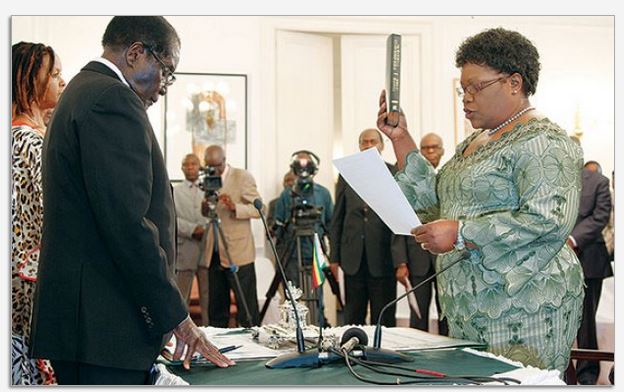Zimbabwean women arguably contributed the most to the liberation struggle by giving up their childhood, their sons, daughters and husbands to the war; and they have survived to tell their stories.
Many women joined the protracted war of liberation as minors, while others supported the valiant freedom fighters with food and shelter; they nursed the wounded and hid weapons, risking their own lives.
In a patriarchal society like Zimbabwe, the woman’s place is, however, so aptly defined that, despite the extreme sacrifices, the heroics made by the women folk have been largely forgotten.
While the liberation struggle was never gendered and the war story ends with victory for all, an independent Zimbabwe with freedom and equality being on top of the list, 36 years after independence, the possibility of a woman leading the country still causes a lot of debate.
Many who are leaders today know that their leadership was inspired, sustained and supported on the shoulders of women during the liberation struggle — from the First Chimurenga of the late 1800s.
The likes of Nehanda Nyakasikana, a woman who purposefully took up arms and provided military advice to the Shona people, come to mind when one seeks to bring to the fore the critical leadership role women have played in Zimbabwe.
Despite the public recognition and acceptance of women as part of the decision makers in political parties and in society, many still do not have confidence in women taking over the country’s top job.
Many feel that despite making up 52 percent of the population, women have limited access to political participation because the nation has failed to respect their rights.
“We are not yet ready for a female president. We are failing to respect the rights of the girl child. We are still raping women, so until we take women as part of the community, we are not ready for a female president,” Bulawayo East legislator, Thabitha Khumalo said.
While men continue to rule the world, women still remain in the same position, trying to sensitise the world of the unwarranted and unacceptable marginalisation of women and existing gender disparities.
Efforts have been made to incorporate women into decision-making positions and according to the Zimbabwe Government Beijing +20 Review Report, since the adoption of the Beijing Declaration and its Platform for Action, Zimbabwe has made remarkable progress in the areas of gender equality and women empowerment.
Government has adopted several legislative, policy and administrative measures to facilitate the implementation of the 12 critical areas of the Declaration. These include: adoption of policies that protect girls and women’s rights in the area of employment, decision-making, health, education, economic empowerment, access and control of resources and the family.
Out of 54 countries in Africa, only one nation has a female President, Ellen Sirleaf Johnson of Liberia, while Joyce Banda was denounced as unfit for presidency during Malawi’s presidential election of 2014. She had acted briefly after the death of her predecessor.
Responses on social media regarding this debate indicate that the nation is highly patriarchal and society is still deeply entrenched in these traditional and archaic views with both men and women largely not ready for a female president in Zimbabwe.
The usual stereotypical views about women were highlighted as the major reason why a woman would find it difficult to become a president in Zimbabwe. Some of the responses even went to the extent of arguing that women are perpetual minors who are unable to make decisions without the male “adult”.
“It is difficult to see the country being run by a woman because women are viewed as mere objects. They are bought, sold, used, abused and married off without their input, so how can they run a whole country?” said one post on social media.
Political analyst, Ricky Mukonza, said the patriarchal state of society meant that Zimbabwe was not ready for a female president.
“Zimbabwe is not yet ready for a female president. You can discern that from the comments that are passed by members of the public on some of the potential female presidential candidates. Zimbabwe is still largely a patriarchal society,” Mukonza said.
But over the years, women have made significant strides in the political arena and have proved that they are ready for any leadership role.
This, said some analysts, is a good basis to measure their ability for the country’s top job.
“My take is that Zimbabwe is ready for a female president as long as that person demonstrates capacity and stamina to deal with a tough political context. Zimbabweans are somewhat used to female politicians and would reward talent when it is noted,” political analyst, Rashweat Mukundu, said.

